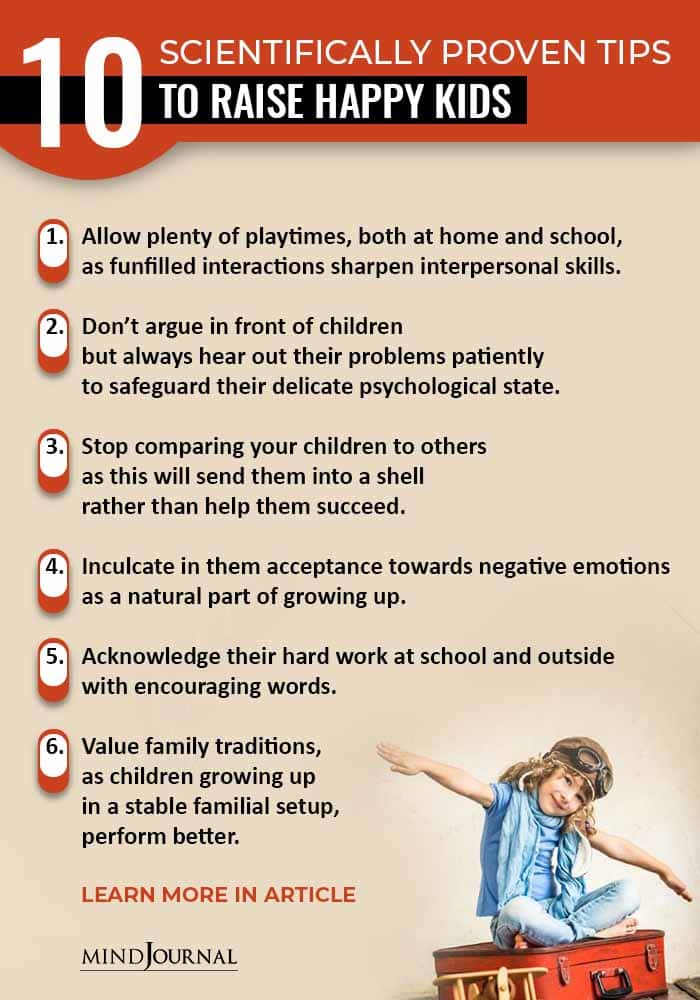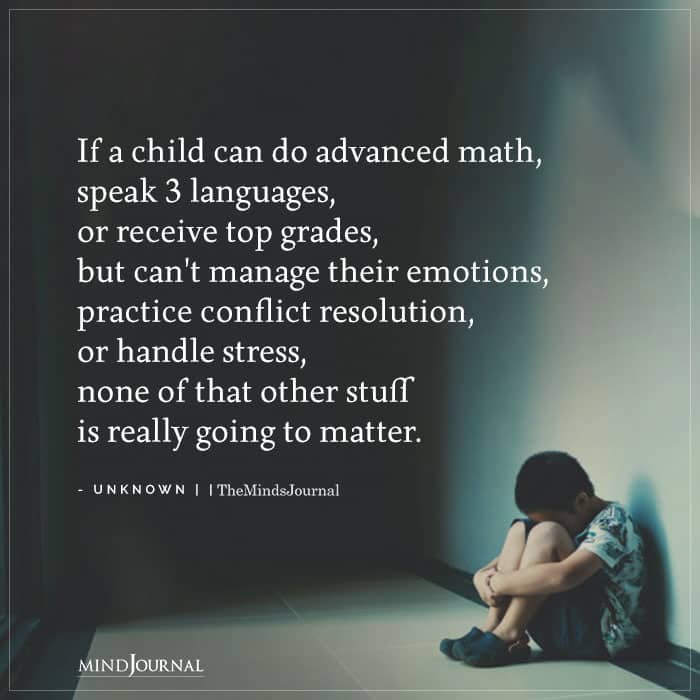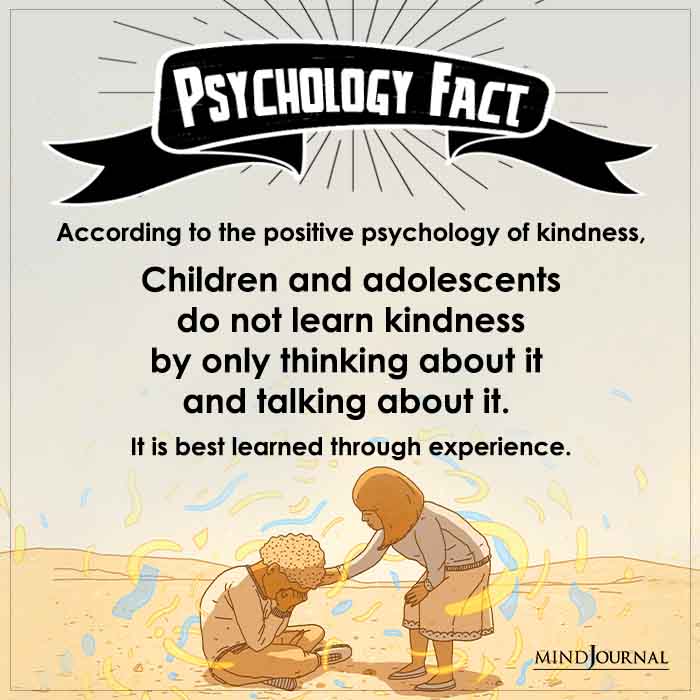There’s a great deal of data available on how to raise successful and intelligent kids, but what about happy kids? Here are scientific tips to raise happy kids.
“One of the luckiest things that can happen to you in life is, I think, to have a happy childhood.”
– Agatha Christie
Childhood is always a special time in anyone’s life. It is a discovery of play and wonder, amusement and great fulfillment. Regardless of circumstance, a child’s demands are always met by its parents. Because every parent wants their children to be happy.
Happiness is almost certainly a trait that is commonly seen in children. Whatever we experience in childhood, shape our thoughts and behavior and manifest as our personality. Happier kids are more likely to turn into successful, accomplished adults.
How to focus on raising happy kids?
Related: Child Sexual Abuse: 5 Reasons Why You Should Reveal It
How To Raise Happy Kids? 10 Effective Parenting Tips That Are Scientifically Proven

1. Allow Plenty Of Time For Play
It is important that the kid has fun along with homework, extracurricular stuff, and sleep. From being a toddler to being an adolescent, it is crucial that children have a lot of playtimes, both at home and in school.
A study found that kids learn the most important lessons in life when they go out and play. With interactions with other adults and children, most kids simply learn a lot about interpersonal behavior.
2. Take The Arguments And Heavy Discussions Outside Of The Home
While the kids develop rapidly in their early teens, most have adult-like problems and uncertainties that need a patient hearing. The child’s delicate psychological state can be negatively affected if the parent does not listen and hear his or her case in point.
It is important that you hear out the children and never fight in front of them!
Related: 7 Tips to Help A Highly Sensitive Child Flourish in School
3. Stop Comparing Children To Others
There is pressure working on all of us in society. Our kids are constantly told that they need to up their ante at every single moment. The pressure to succeed is humongous and we would all love our kids to duplicate success. But this comparing is not a good enough strategy and sends children into a shell.
4. Inculcate In The Child A Feeling Of Benefit Of Negative Emotions
No child is mature enough to take negative emotions lightly. Adults often dole out “misbehavior” to their kids as punishment. This may not be rewarding in the long term. Children often regard negativity as something taboo.
Try and acknowledge the fact that negative emotions are also part of the growing up phase in children and should be constructively followed.

Related: How To Communicate With Your Child If You Are a Single Parent?
5. Acknowledge The Efforts
As a parent, it is critical that you focus on hard work the child is putting in at school and outside of it. The fact that carrying out a task typically enables the child to aim for the stars is critical in the growing up process.
Say things like “you are good at this!” “Keep it up” etc. Acknowledging efforts will help you raise happy kids.
6. Value The Family Traditions
A child that grows up with a stable family is almost certainly going to perform better cognitively and in school. Having good family time often enables the child to feel loved and important, observe positive adult traits, guide and steer through life, and develop a strong child and parent bond.
A child is almost certainly able to verbalize its thoughts and feelings when he or she is in a stable familial setup.
7. Let Children Take Up Chances In Life
Attentiveness to a child is necessary when he or she is growing up. Supervision is a must! While you monitor every move – you should also allow the child to take chances in life. Resilience and maturity, and other life skills will develop in your child.
8. A Sense Of Individual Responsibility Takes Shape
Never let the child abdicate responsibility. It is necessary that you enable the child to take up responsibilities rather than shirking them. Such a practice will help them become responsible citizens as well.

Related: Trauma of Children Of Addicts & Alcoholics
9. Try And Create Happy Memories
Another study showed researchers that a good and happy memory about something in childhood often triggered a sense of benevolence in adults later on in life. It is thus imperative that children have a good deal of happy memories to live by.
10. Stay Happy As Adults To Inculcate The Same In Kids
As parents, we have a responsibility to be calm and stay happy. You need to set a good example. Our children follow our footsteps and take heart to what we do.
If you want to know more about how to raise a successful and happy child, here’s a video:
Are you ready to raise happy kids? And if you have more tips to share, comment down below!
References:
1. Borba, M., 2006. 12 Simple Secrets Real Moms Know: Getting Back to Basics and Raising Happy Kids. John Wiley & Sons.
2. Delisle, J.R., 2006. Parenting gifted kids: Tips for raising happy and successful children. PRUFROCK PRESS INC..
3. Clarke-Fields, H., 2019. Raising Good Humans: A Mindful Guide to Breaking the Cycle of Reactive Parenting and Raising Kind, Confident Kids. New Harbinger Publications.












Leave a Reply